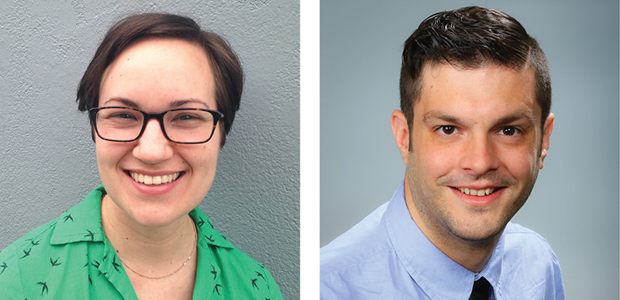Ellen O. White is a recipient of the Dwight David Eisenhower Transportation Fellowship. She conducts research on the environmental impacts of transportation infrastructure. Her dissertation research focuses on roadside vegetation management practices as implemented in different state and local contexts, and how these policies may impact the local ecology of the surrounding roadside. Prior to starting the PhD program, Ellen received a Master of Urban Planning from Harvard Graduate School of Design and a Master of Landscape Architecture from Rutgers. She is a member of the Transportation Research Board’s Landscape and Environmental Design Committee.
Evan Iacobucci also received the Dwight David Eisenhower Transportation Fellowship. His research focuses on travel behavior and how people make decisions on whether to forego vehicle ownership. In his work he has used social media data to understand how this decision process plays out. He hopes for the results of this work to motivate effective interventions that promote sustainable and healthy transportation behaviors and systems. Evan has also contributed to research on safety of vulnerable road users, specifically by using content analysis techniques to analyze media coverage of bicycle and pedestrian crashes. Evan previously attended the University at Buffalo, where he completed a Master of Urban Planning degree as well as a Master of Arts in Philosophy. Evan studied French as an undergraduate at the State University of New York College at Geneseo.
The Dwight David Eisenhower Transportation Fellowship Program (DDETFP) awards merit-based fellowships to students pursuing degrees in transportation-related disciplines. This nationally competitive program advances the transportation workforce by helping to attract the nation’s brightest minds to the field of transportation, encouraging future transportation professionals to seek advanced degrees, and helping to retain top talent in the U.S. transportation industry. DDETFP is administered by the Federal Highway Administration and generally results in 150-200 grants annually, subject to the availability of funds.


